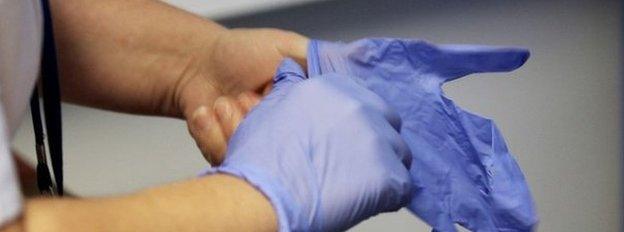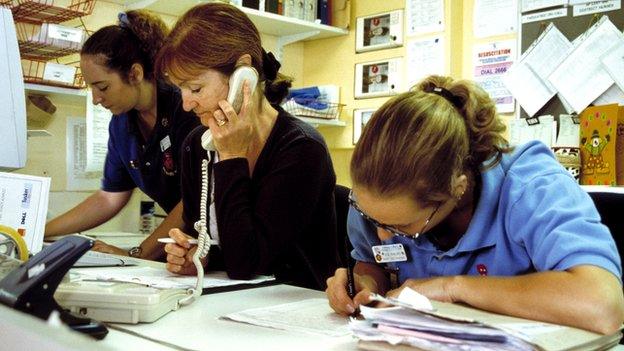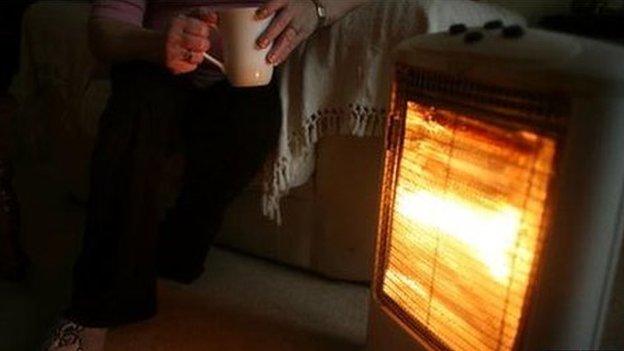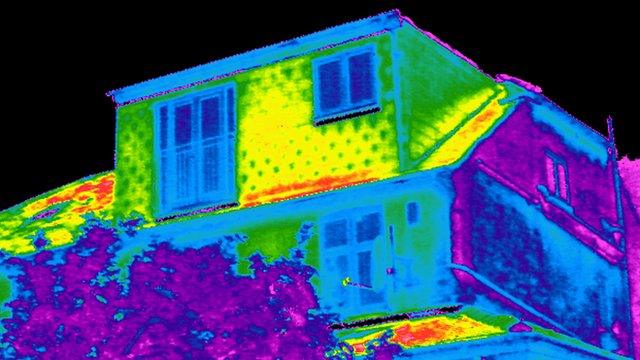Are nurses the new doctors?
- Published

Medicine has changed dramatically over the years with new drugs and treatments revolutionising the way patients are cared for.
With that has come an overhaul in the way staff work. In particular, the demarcation between doctors and nurses.
What was once the preserve of doctors - prescribing drugs, ordering x-rays, referring patients and diagnosing - is now also done by many senior nurses who have had extra training.
They go by a variety of titles from nurse consultants and clinical nurse specialists to nurse practitioners.
Some specialise in a particular condition - diabetes or heart disease for example - while others coordinate care in A&Es and or community settings.
Go to a walk-in clinic or minor injury unit and the chances are you'll be seen by a nurse.
Some GPs also use nurse practitioners to ease their workload by carrying out consultations.

The 'super' nurse
Matt Hodson is a nurse consultant who specialises in respiratory disease.
He has a masters and doctorate and leads a team of specialists who provide care in the community and in hospitals in east London.
Unless a patient has an emergency, they need never see a doctor - something the public still does not fully appreciate.
"Before we started, patients either saw their GP or went to hospital," he said.
"But now we are able to look after their needs - we can refer, prescribe, give clinical advice.
"If problems flare up we can provide oxygen or a nebuliser. These are the sort of things traditionally done in a hospital but there is a lot nurses can do," added Mr Hodson.

And the evidence suggests it works.
Research by the British Heart Foundation on heart failure specialist nurses has shown that they can reduce hospital admissions and consultant appointments, giving a saving of over £1,800 per patient.
The charity Parkinson's UK has found that a specialist nurse saves over £200,000 a year in avoidable bed days, consultant appointments and unplanned admissions.
Over the years I have heard nurses describing themselves as "mini-doctors" or "substitute doctors" doing the jobs medics once did.
In fact, on wards you can sometimes find experienced nurses being assertive in discussions with junior doctors.

Nurses v doctors

There are nearly 330,000 nurses (in terms of full time equivalents) working in the NHS in England - with 64,000 working in senior roles.
By comparison there are more than 32,000 GPs and 40,000 consultants.
GP partners (those which run practices) earn an average of £102,000 a year, while those that are employed by practices get £56,000.
Pay for senior nurse roles varies greatly, with salary bands stretching from £31,000 to £81,000.

All this begs the question: what more could senior nurses do?
After all, the NHS is facing particular problems recruiting GPs and A&E doctors in particular, while the ageing population is putting more and more demands on services.
It was a point floated by the Royal College of Nursing this week.
Peter Carter, the union's general secretary, said senior nurses were a "huge part of the solution" in the push to create seven-day services as they could "make decisions, supervise teams and educate and mentor".
Currently there are about 64,000 nurses employed in England in senior roles - although it will include those in managerial position as well as nurse consultants and the like.
That is only marginally fewer than the 72,000 hospital consultants and GPs that are on the pay roll.
What do doctors think?
The medical profession has always been reluctant to relinquish its roles and responsibilities.
Paul Flynn, chair of the British Medical Association consultants committee, and a consultant obstetrician and gynaecologist, believes there is a "limit" to how far you can go with this.
He says evidence shows those senior nurses working in general practice, for example, order more tests and take longer to do consultations.
"It's not always more efficient, what we need is properly resourced staff across the NHS," he said.
"In hospitals nurse specialists can take on some of the jobs. For example I will make the diagnosis and then the nurse will take charge of discussing treatment options and managing that side.
"It means I can get on and see the next patient. But you can't simply replace one with another," he explained.
It is, of course, a fair point.
But with the nature of health care changing as medicine advances, and a growing amount of time devoted to helping people manage their conditions, there is arguably a growing role for the expert nurse as a way of making resources stretch further.
- Published4 June 2015

- Published5 March 2015

- Published13 June 2014
